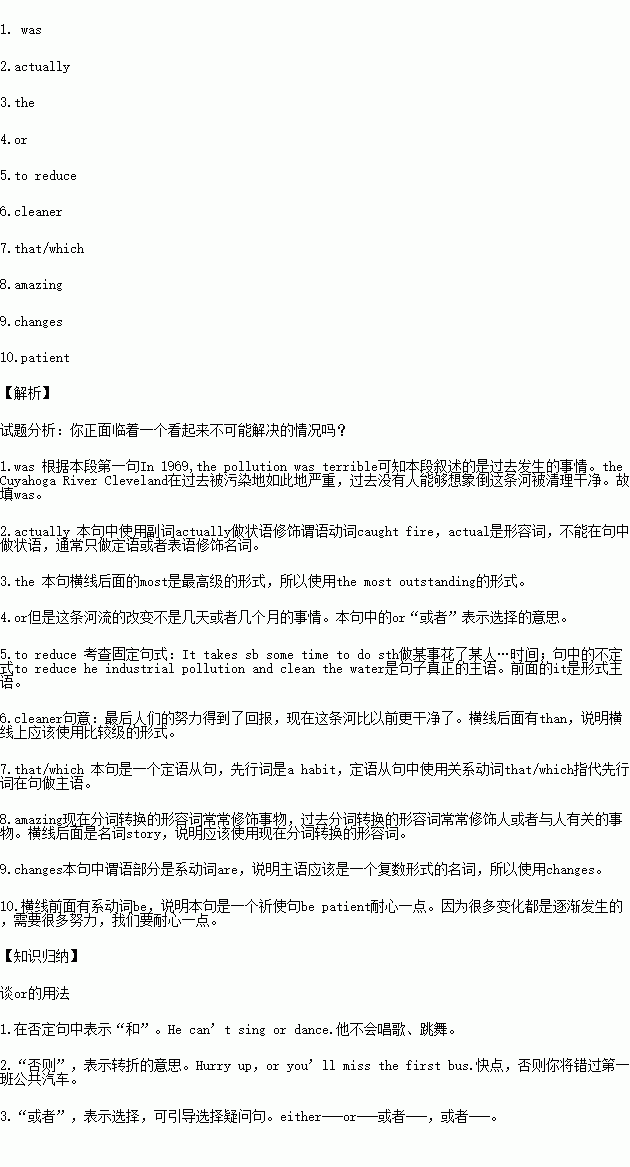题目内容
阅读下面材料,在空白处填入适当的内容(1个单词)或括号内单词的正确形式。
Are you facing a situation that looks impossible to fix?
In 1969, the pollution is terrible along the Cuyahoga River near Cleveland, Ohio. It ______1.(be)imaginable that it could be ever be cleaned up. The river was so polluted that it ______2.(actual) caught fire and burned. Now year later, this river is one of______3. most outstanding examples of environmental cleanup.
But the river wasn’t changed in a few days_____4.even a few months. It took years of work ______5.(reduce) industrial pollution and clean the water. Finally, that hard work paid off and now the water in the river is______6.(clean) than ever.
Maybe you are facing an impossible situation. Maybe you have a habit _____7. is driving your family crazy. Possibly you drink too much or don’t know how to control your credit card use. When you face such impossible situation, don’t you want a quick fix and something to change immediately.
While there are_______8.(amaze) stories of instant transformation, for most of us the ______9.(change) are gradual and require a lot of effort and work, like cleaning up a polluted river. Just be_______10.(patience)
 优质课堂快乐成长系列答案
优质课堂快乐成长系列答案
